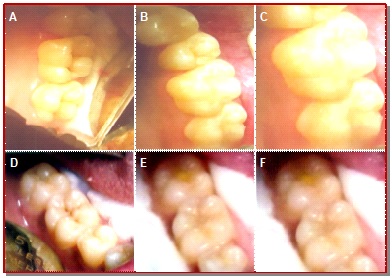A comparative clinical study on efficacy of nanofilled resin-modified and conventional glass ionomer pit and fissure sealant in molar tooth
DOI:
https://doi.org/10.3329/bsmmuj.v11i4.38447Abstract
The present study compared the clinical performance of nanoparticulated resin modified glass ionomer and conventional glass ionomer pit and fissure sealant on permanent molars. Fifty patient having bilateral occlusal grooves in pits and fissures of the occlusal surface were included for this study where 50 teeth were treated with nanopaticulated resin modified and the remaining 50 teeth were subjected to conventional glass ionomer sealants. The color match, retention and marginal adaptation were assessed at 3, 6 and 12 months and statistical analysis was performed by Chi-square test to assess the difference between the two sealants; a values of <0.05 was considered as statistically significant. The results showed that although there were no significant differences between two sealants at baseline and 3 months observation period but nanoparticulated resin modified glass ionomer sealants showed better clinical performance than that of conventional glass ionomer sealants at 12 months and the differences between two sealants were statistically significant (p<0.05). It can be concluded that naqnoparticulated resin modified glass ionomer sealant exhibited better color stability, more retention, and better marginal adaptation than those of conventional glass ionomer sealants at 12 months observation period.
Downloads
440
165 Read
129

Published
How to Cite
Issue
Section
License
Copyright (c) 2018 Dilruba Khatun, Mozammal Hossain, Md. Joynal Abdin, Md. Abdul Hannan Sheikh, Md. Shamsul Alam

This work is licensed under a Creative Commons Attribution-NonCommercial 4.0 International License.



